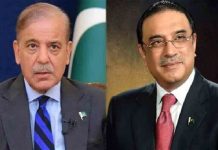DM Monitoring
LONDON: Foreign Minister Shah Mahmood Qureshi has once again urged the international community to engage with the “new reality” in Afghanistan and unfreeze the country’s assets so that things do not fall apart. In an interview with Al Jazeera, Qureshi said Pakistan has been urging the international community to engage with the new reality in Afghanistan so that things do not fall apart and a semblance of order is established. Expressing his views regarding the freezing of about $10 billion in Afghan assets, he pointed out that Afghanistan needs an economic injection and that money could come in handy if it was available.
“Unfreeze it and make it available for the Afghan people. There is a humanitarian crisis in the making and use that money to address the crisis,” he added. He suggested that there could be ways and means to ensure that the money reached the needy and was not misused, adding that the United Nations could play a role in this regard. In response to a question, Qureshi said it “certainly concerned” Pakistan if there was a total economic collapse in Afghanistan.
“The collapse could lead to an exodus, a huge influx of refugees moving in different directions towards Pakistan, Iran and Tajikistan. It could destabilise the entire region. And we are very concerned about that,” he elaborated. He further said that an economic collapse could give space to terrorists. “It would have serious consequences not only for Pakistan but for the entire region. The consequences could roll out of the region,” he cautioned. To another question, Qureshi replied that there was uncertainty when the Taliban took control of the country on Aug 15, but the anxiety had gone down because “there has been no bloodshed after the takeover and chances of a major civil war have been averted.”
Moreover, there was an announcement of general amnesty and commitment by the Taliban that there would be no revenge. There was more calmness, he added. “So I don’t think people are restless at the moment, but yes, things remain uncertain and if some challenges are not addressed and dealt with rigidly, they can take a different turn,” the foreign minister said. The foreign minister said Pakistan was watching and observing as things unfolded and would take a decision on whether to recognise the Taliban government or not at an appropriate time.
About the United States’ invasion of Afghanistan after 9/11, the foreign minister observed that perhaps, they had no choice as there was compulsion due to public opinion. He said the US should have focused on what they had gone in for after disseminating the Al Qaeda network. They should have worked towards reconciliation, peace and reconstruction efforts in Afghanistan. “The country could have gone to normal. The bulk of the money had been spent on security and less on development. The government of Ashraf Ghani lost credibility because the Afghan people felt that life under them was not improved and not secured. There was squabbling and infighting and they were not certain about their future,” he added.
Responding to another question related to allegations by former vice president of Afghanistan, Amrullah Saleh, Qureshi said, “He (Saleh) used to speak someone else’s language. He was briefed by India and was on their payroll.”
About an inclusive government in Afghanistan, the foreign minister said that gradually, it appeared the Taliban had accepted the idea of inclusion of multiple ethnicities. Pakistan has been advocating for a more inclusive approach, he said, adding that “in politics, you have to make compromises and make moves to accommodate all points of view from both sides.”
The foreign minister, in response to a question, said that Afghans were very independent-minded people who took their own decisions. “We, as a policy, decided not to interfere in their internal matters. We will help when asked to help,” he said, reiterating the desire to achieve peace and stability in Afghanistan. He asserted that Pakistan would do whatever it could to achieve peace and stability in Afghanistan. “We have no business in interfering with their internal matters,” he maintained.
Qureshi said it concerned Pakistan if elements of the banned Tehreek-i-Taliban Pakistan (TTP) had been set free from jails in Afghanistan. In response to a question regarding female education in Afghanistan, he said that according to his information, girls were going to schools and colleges and were not being restricted. Women could also be accommodated in the cabinet, he added. Qureshi said the Taliban had urged the people who were in the government service to come back and resume work.
“It takes time to bridge the trust deficit,” he noted.
The foreign minister said Pak-Afghan borders were kept open. “The question is, would you allow people into your country without documentation, visa or passports? You don’t. There are certain norms you have to follow,” he contended.




